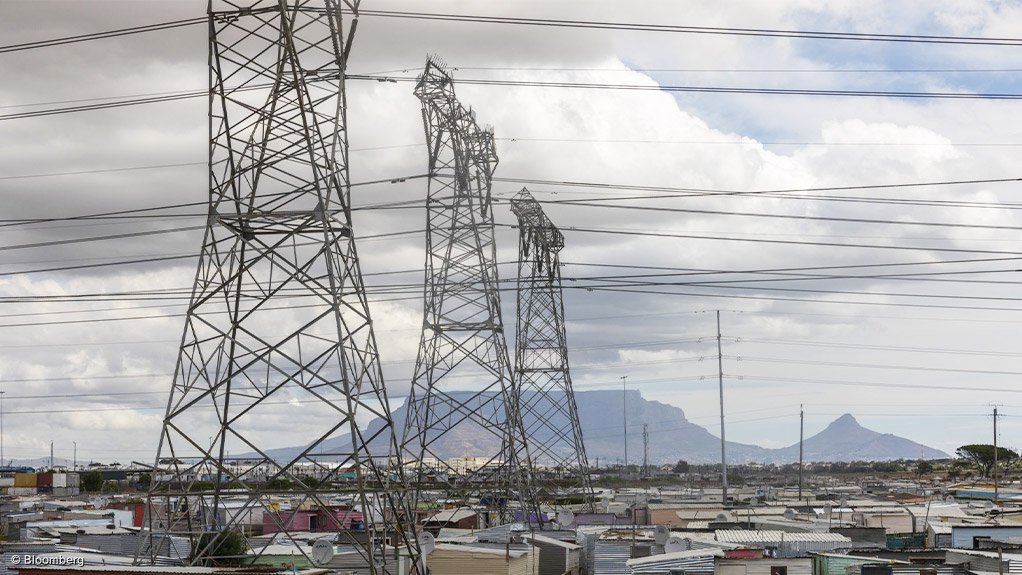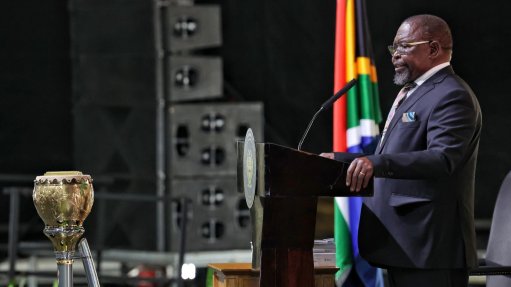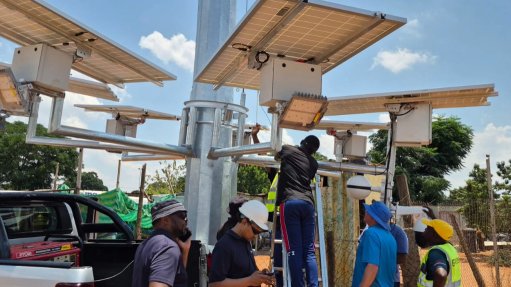Salga energy head calls for post-election review of free basic electricity scheme
The head of energy at the South African Local Government Association (Salga) has called for a review of both the size of the free basic electricity (FBE) allocation as well as the way the grant is assigned, arguing that many indigent households are currently not benefiting from the scheme as intended.
Speaking during a roundtable discussion on South Africa’s electrification programme as part of government’s ongoing activities to mark 30 years of democracy, Nhlanhla Ngidi described the current monthly allocation of 50 kWh as “minute” and well below the 300 kWh to 400 kWh that poor households were typically consuming.
He also argued that the registers of indigent households, which are used by municipalities to distribute the benefit, were out of date, resulting in intended beneficiaries being bypassed while those with means to pay were continuing to enjoy the benefit.
In addition, the widespread practice of bypassing electricity meters, which was further undermining the relevance and effectiveness of FBE, while robbing both municipal distributors and Eskom of revenue.
“The policy has good intentions, but we need to review it,” Ngidi said, adding that after the elections government should also prioritise a recrafting of the way indigent households are identified and supported with electricity.
Research published by the Public Affairs Research Institute in 2023 concluded that fewer than a quarter of qualifying indigent households were benefiting from the 50-kWh-a-month scheme, and that the scale of the grant was also insufficient to reduce poverty and inequality.
The authors urged government to consider increasing the monthly FBE allocation to 350 kWh, which it described as the minimum threshold at which electricity would begin yielding meaningful socioeconomic benefits.
Speaking during the roundtable, EE Business Intelligence MD Chris Yelland added that there was also a need to improve data collection and research around the electrification programme.
Describing the connection of some 8.3-million households as a success, he said the goal of universal access beyond the current 94.7% remained elusive, owing to ongoing changes in circumstances driven by factors such as migration and urbanisation. Better data was required, he argued, to help identify the gaps, while research was needed to find better ways to close them.
Yelland also argued that while the provision of access to electricity was crucial, it was equally important to address affordability to make that access truly meaningful and to mitigate the threat of electricity theft.
The Department of Mineral Resources and Energy’s Lufuno Madzhie reported that the backlog was currently estimated to be over 3-milion households, 1.2-million of which were in informal settlements mostly in and around South Africa’s large urban centres.
Besides internal capacity and financial constraints, municipalities also faced legal hurdles to electrifying informal settlements, which had not yet been resolved.
Nevertheless, there was consensus that there should be ongoing efforts to meet the universal access goal, which has both social and economic benefits, ranging from convenience and safety, through to enabling night-time study and the launching of small businesses.
Eskom Distribution senior manager Portia Papu indicated that Eskom remained committed to implementing the electrification programme, having been responsible for some six-million of the new connections deployed to date; initially off its own balance sheet and currently drawing on a yearly allocation in the national Budget.
Papu indicated that the utility was also increasingly turning to new technologies, including microgrids, to implement electrification in those far-flung areas where the cost of connecting communities to the national grid was considered prohibitive.
Article Enquiry
Email Article
Save Article
Feedback
To advertise email advertising@creamermedia.co.za or click here
Press Office
Announcements
What's On
Subscribe to improve your user experience...
Option 1 (equivalent of R125 a month):
Receive a weekly copy of Creamer Media's Engineering News & Mining Weekly magazine
(print copy for those in South Africa and e-magazine for those outside of South Africa)
Receive daily email newsletters
Access to full search results
Access archive of magazine back copies
Access to Projects in Progress
Access to ONE Research Report of your choice in PDF format
Option 2 (equivalent of R375 a month):
All benefits from Option 1
PLUS
Access to Creamer Media's Research Channel Africa for ALL Research Reports, in PDF format, on various industrial and mining sectors
including Electricity; Water; Energy Transition; Hydrogen; Roads, Rail and Ports; Coal; Gold; Platinum; Battery Metals; etc.
Already a subscriber?
Forgotten your password?
Receive weekly copy of Creamer Media's Engineering News & Mining Weekly magazine (print copy for those in South Africa and e-magazine for those outside of South Africa)
➕
Recieve daily email newsletters
➕
Access to full search results
➕
Access archive of magazine back copies
➕
Access to Projects in Progress
➕
Access to ONE Research Report of your choice in PDF format
RESEARCH CHANNEL AFRICA
R4500 (equivalent of R375 a month)
SUBSCRIBEAll benefits from Option 1
➕
Access to Creamer Media's Research Channel Africa for ALL Research Reports on various industrial and mining sectors, in PDF format, including on:
Electricity
➕
Water
➕
Energy Transition
➕
Hydrogen
➕
Roads, Rail and Ports
➕
Coal
➕
Gold
➕
Platinum
➕
Battery Metals
➕
etc.
Receive all benefits from Option 1 or Option 2 delivered to numerous people at your company
➕
Multiple User names and Passwords for simultaneous log-ins
➕
Intranet integration access to all in your organisation




















